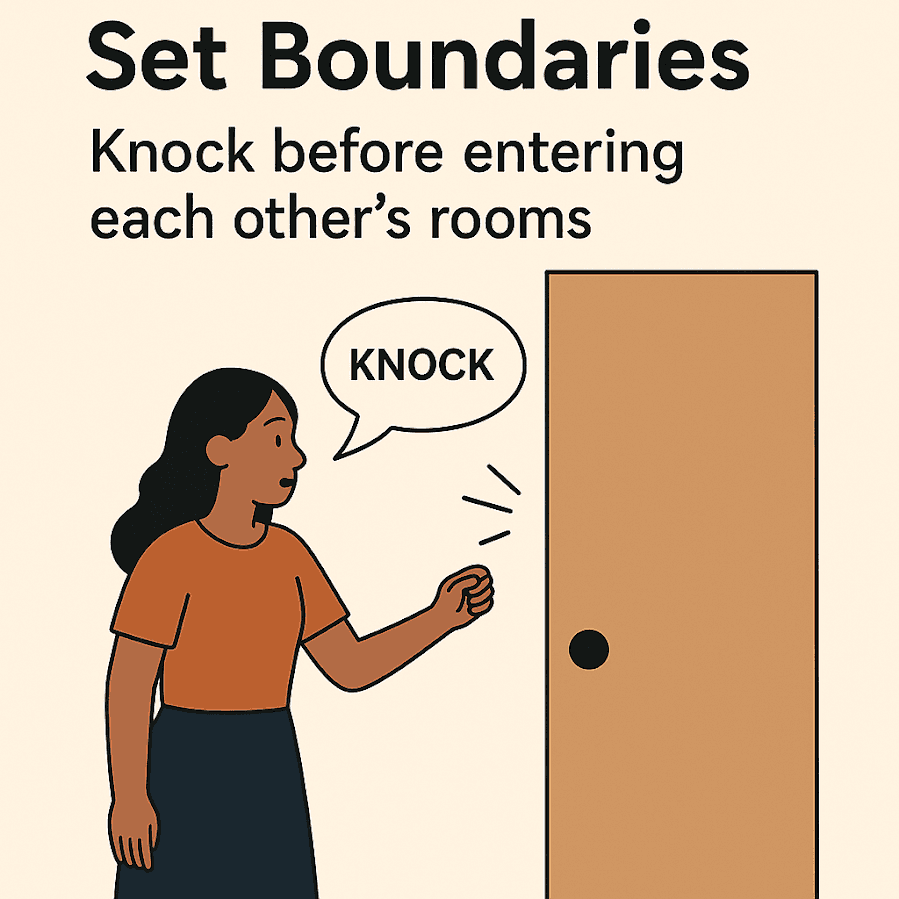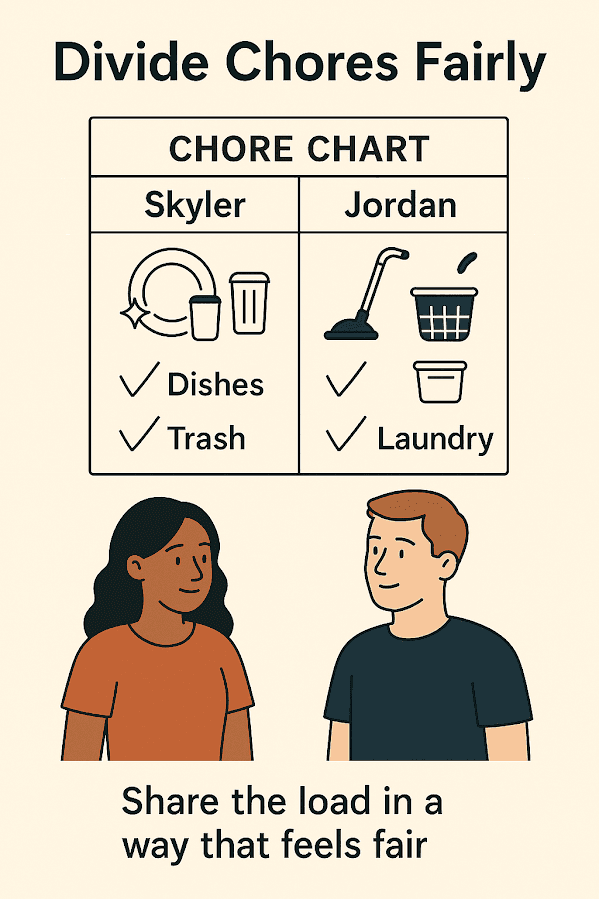
The Roommate Survival Guide: How to Live Together Without Losing Your Mind
Sharing a home with someone—whether it’s a longtime friend, a total stranger, or a college-assigned wildcard—can be both rewarding and stressful. While the right roommate setup can lead to lifelong friendships, the wrong one can make you question your sanity (and possibly humanity).
Living together peacefully isn’t just luck—it’s about communication, compromise, and a bit of strategy. Here’s how to make it work without losing your mind in the process.
1. Set Expectations Early
The moment you move in together—or better yet, before you move in—have a real talk about expectations. It may feel awkward, but it’s far better than building quiet resentment over who keeps leaving dirty dishes in the sink.
Topics to cover:
- Guest policy: Are overnight visitors okay? How often?
- Quiet hours: Do you need silence after 10 p.m. for early classes or work?
- Shared items: Is the peanut butter fair game or sacred?
The goal here isn’t to lay down the law, but to prevent misunderstandings. Even if you assume something is “just common sense,” your roommate may have a very different definition.
2. Communicate Like Adults (Even If You Don’t Feel Like One)
Passive-aggressiveness is the fastest way to ruin a roommate relationship. Leaving sticky notes that say, “Some of us DO the dishes” will not fix the dishes—it’ll just create tension.
Instead, practice direct, respectful communication. If something is bothering you, bring it up calmly. Use “I” statements to avoid sounding accusatory. For example:
❌ “You’re always making a mess!”
✅ “I’ve been feeling stressed when the kitchen is messy—can we agree on a cleaning schedule?”
If you’re nervous about confrontation, try a neutral moment (not when either of you is already frustrated), and aim for solutions rather than blame.
3. Establish Boundaries—and Respect Theirs
Boundaries aren’t about control; they’re about comfort and respect. Everyone needs a certain level of personal space, even in a shared home.
Examples of healthy boundaries:
- Knock before entering each other’s rooms.
- Ask before borrowing clothes, chargers, or food.
- Respect different sleep or work schedules.
If your roommate is an extrovert and you’re an introvert (or vice versa), be honest about your needs. You don’t have to hang out 24/7 just because you live together.

4. Divide Chores Fairly (Not Just “Evenly”)
Nothing sparks drama like uneven household contributions. It’s not always about splitting everything 50/50—it’s about sharing the load in a way that feels fair to both people.
Here’s a simple system:
- Create a chore chart (yes, even as adults—it works).
- Play to strengths: If one person hates dishes but doesn’t mind vacuuming, trade tasks accordingly.
- Use a shared app like Splitwise or OurHome to track chores and shared expenses.
Avoid relying on “I’ll do it when I feel like it.” That quickly leads to one person doing everything while the other “forgets.”

5. Be Considerate in the Little Things
Sometimes, it's the tiny things that make or break roommate harmony. You don’t have to be best friends, but common courtesy goes a long way.
- Don’t blast music late at night.
- If you finish something (toilet paper, milk, etc.), replace it.
- Clean up after yourself—especially in shared spaces.
These small habits communicate, “I respect that we’re both living here.”
6. Know When It’s Time to Talk—and When It’s Time to Move On
Not every roommate situation is meant to last forever. If you’ve tried setting boundaries, communicating openly, and being flexible—but still feel miserable—then it may be time to consider moving out (or having them move out).
It’s not failure—it’s learning what you need in a living environment. Sometimes, survival means knowing when to walk away.
Bonus Tip: Use the Right Tools
If you're still looking for a roommate, save yourself the trouble by using a service designed for compatibility and safety. iROOMit is one of the best apps for finding trustworthy roommates and affordable rooms. With smart matching and user profiles, it helps you avoid the nightmare stories before they start.
Final Thoughts
Living with a roommate is a crash course in adulthood—full of challenges, compromises, and the occasional “Did they just eat my leftovers again?!” moment. But with honest communication, clear boundaries, and a fair chore system, you can build a home that’s peaceful, productive, and maybe even fun.
Because at the end of the day, your home should be a place to relax—not a passive-aggressive battlefield over who took out the trash last.
